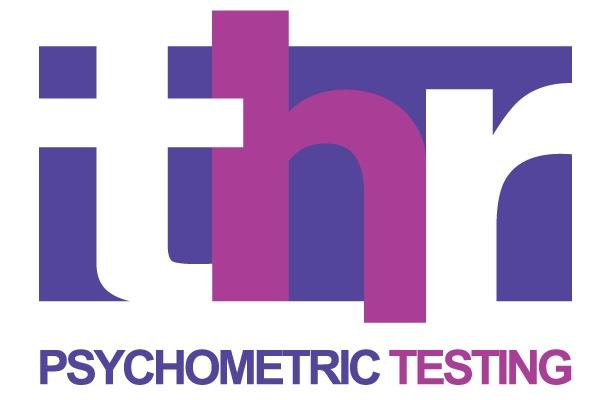Psychometric testing – how to choose the right assessment

When you choose a new employee from a list of candidates, can you really tell whether they’re going to be the right person for your business?
In the workplace, it’s reasonably easy to assess someone’s skills, education and even ability. Even at the recruitment stage. But behaviour and personality traits are much harder to assess and predict.
Cue psychometric assessments which are now used by over 80% of the Fortune 500 companies in the USA and by over 75% of the Times Top 100 companies in the UK.
A psychometric test aims to provide measurable, objective information that gives a better all-round view of a candidate’s suitability. A job interview is often a very subjective process and although employers will normally assess skills and experience fairly accurately, much is still left to gut instinct when it comes to personality and cultural fit.
But with the ever-increasing costs associated with recruitment and the risk of employing the wrong person, employee morale and retention should be an important priority. And psychometric assessments are an essential part of getting this right.
Which test?
There’s a vast amount of information available about psychometric testing and a vast number of tests to choose from. Hand in hand with an industry bursting with technical jargon, this often leads to confusion at best, or at worse, choosing the wrong type of assessment or provider.
With this in mind, in the next couple of posts, I’m going to explain how to:
• choose the right test or assessment and what to look out for.
• choose the right professional provider to assist and interpret the results.
• get the most benefit and use out of the assessment you use.
How to choose which psychometric assessment or test to use
1. Know your objectives
Before you start researching which test or assessment to use, be clear on why and how you want to use a psychometric assessment.
In the workplace, the most common use is at the recruitment stage but they can also be crucial for employee development. You certainly shouldn’t rule this out until you know a little more.
Assessments can help predict whether a candidate is a good fit with the company team, what role might suit them best (or not) and how they may perform under pressure. They can also help with individual personal development, highlighting someone’s strengths and weaknesses.
Whatever purpose you’re thinking of using the assessments for, they shouldn’t be used in isolation. You can’t make your recruitment decisions purely on the basis of an assessment, so you’ll still need a robust recruitment process which dovetails with the information the assessment can provide.
2. Understanding different psychometric assessments
Aptitude and ability v personality
Aptitude and ability tests pretty much do what they say on the tin. They test a candidate’s competence, intellect and reasoning ability. They’re often used to give an indication of a candidate’s ability to process information while working to a time limit. In this arena, you’ll commonly come across verbal and numerical testing although there are other types of test.
In short, these tests assess a candidate’s ability to do a specific job or role and can predict their performance. They’re often paper based.
Personality
As the name suggests, personality assessments measure and assess an individual’s behaviour, attitudes and opinions. They can also assess a candidate’s motivation, interests and values.
This sort of assessment can provide vital insights into how a candidate may behave in certain circumstances, the way they operate and their preferences and attitudes. It’s not hard to see how useful this information can be beyond recruitment. In this series of posts, we’re primarily focussing on this type of psychometric assessment.
3. Choosing a test
Once you’ve narrowed down what you want the assessment for and the type of assessment you need, it’s time to choose a specific assessment.
There are of course innumerable assessments and many are available either free or very cheaply online. Think twice before you go for this option.
As a helpful starting point, you may wish to visit The British Psychological Society’s Psychological Testing Centre (click here to link to bps testing centre). This provides information about psychometrics, as well as specific test reviews and a list of those tests which are registered with them.
Each test is different but as you narrow your list down, there are important aspects of every assessment that you need to look for, such as:
a) Reliability and validity
A good test should be supported by statistical and empirical evidence which shows both the test’s reliability and their validity. This information ought to be freely available.
Reliability is the measure of whether a test provides consistent results for the same individual.
The industry standard for reliability is 0.7 so you want a test with at least that score or above. This establishes that if you test the same candidate twice but two weeks apart, you’ll get the same results, not wildly different ones.
Validity shows whether a test is measuring what it says it measures. Standard validity standards are 0.3 to 0.5.
b) Norm / comparison groups
This is the group of people who have taken the test against whom your candidate will be measured. Ideally you want your comparison group to be a similar demographic to your workforce.
Put simply, there’s no point measuring your candidate for a sales director position of a medium sized UK company against a group of teenagers from an inner-city area.
Ideally you also want the comparison group to include thousands, rather than hundreds of people. The result of your test will normally be given as a percentile i.e. your candidate performed better than say 95% of the comparison group.
c) Impartiality
Any test or assessment you choose, should be able to show that they do not unfairly disadvantage certain groups. A number of tests exclude the candidate’s name (and give them a number) for that reason.
d) Provider
An assessment carried out by a qualified and experienced professional is going to be much more accurate and useful than a computer-generated printout. But choosing the right provider is in itself important and I’ll be covering this in my next post.
If done well, psychometric assessments are a hugely useful tool for employers. But it is important to choose the right assessment and provider and have a good understanding of what you want to achieve if you want to get real value out of the money you spend.
If you’d like more information about this area, please get in touch via email to Tracy Humphrey at enquiries@thrconsulting.org.uk




